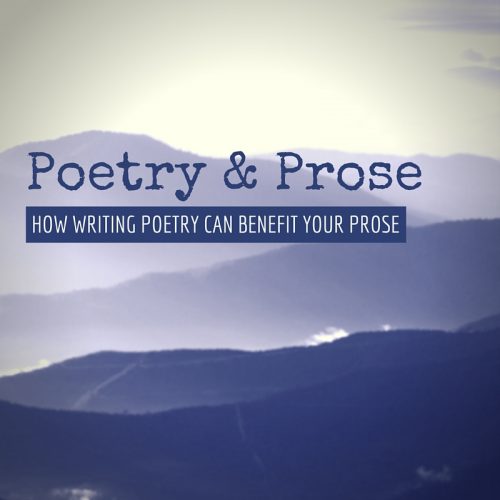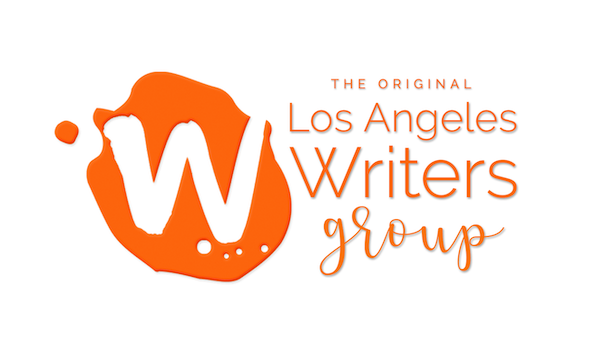How Poetry Can Benefit Your Prose
 Many prose writers also write poetry, or at least make a habit of reading poetry. Practicing the art of writing poetry can only benefit your overall writing. Here are a few reasons why:
Many prose writers also write poetry, or at least make a habit of reading poetry. Practicing the art of writing poetry can only benefit your overall writing. Here are a few reasons why:
Imagery and Specificity
Imagery is one of the most important tools in poetry. It can reveal and inform theme, setting, mood, and the arc of a poem. Poets use imagery to express feelings or concepts instead of stating an emotion outright. In this way, the subject becomes more specific and therefore more relatable to the reader. George Ella Lyon’s poem, Where I’m From is a stunning example of how powerful imagery can be in poetry:
I’m from Artemus and Billie’s Branch,
fried corn and strong coffee.
From the finger my grandfather lost
to the auger,
the eye my father shut to keep his sight.
See how she uses the concrete images of “fried corn” and “strong coffee” instead of saying something more general such as, “hearty southern folk?” Practicing this kind of strong imagery can only add to your tool box as a writer, whether you write fiction, non-fiction, or poetry.
Expressing Complex Ideas Succinctly
Writing poetry can be a great way to practice expressing a complex idea in very few lines. An example is John Thomas’ haiku poem called Haiku — 14.vii.85:
buying dead men’s shirts
fifty cents each at Goodwill:
soon they’ll be back here
See how short and seemingly simple this poem is? And yet he’s expressing the complex issue of his own mortality and the materialism of our culture through the imagery of “dead men’s shirts” in such a succinct way.
Strong Word Choice and Tone
The cornerstone of a good poem is tight and purposeful word choice. William Carlos Williams, in his poem, This is Just to Say, shows us that strong word choices don’t necessarily mean using the fanciest words:
This is Just to Say
I have eaten
the plums
that were in
the icebox
and which
you were probably
saving
for breakfast
Forgive me
they were delicious
so sweet
and so cold
At the end, the simple “so sweet/and so cold” provide so much texture. We can taste the sweetness and feel the cool sensation of biting into the fruit. There is a sensualness to the simplicity, rendering the need for cerebral language unnecessary. And he saves his use of adjectives (because those should be kept to a minimum whenever possible!) until the very end, when we’ve lived in this world just long enough for these words to resonate and mean something.
The simplicity of his language lends to the tone of voice and implies an intimacy between the speaker and addressee. It’s not a formal letter, which would begin “Dear…” or “To Whom It May Concern.” Each word, including the title, is conversational and confessional, which punctuates the idea that word choice needs to be appropriate to the content–an idea that is beneficial in both poetry and fiction. The words “sweet” and “cold” are playful, which begs the question: when he says, “Forgive me,” is he really asking for forgiveness, or is he being coy, flirtatious? He’s taunting the addressee (who we can assume to be his lover) with the devoured plums!
This poem is also an example of the power of the line break and how poetry can play with white space on a page. It looks like it could be a post-it note written to his lover and stuck on the fridge. It’s also a great example of how your title can play into the overall context of your piece.
***
As you can see, working in the poetic form can only benefit you as a writer, no matter what you write. Poetry forces you to tighten and think purposefully about word choice as it relates to the content, motivation, and point of view. Poetry is an invitation to focus on specificity and imagery in your writing. Some people are intimidated by poetry, but really, it’s one expression of the purposefulness and intention we hope to find in all writing.
By Nicole Criona and Carmiel Banasky.

Warning: Trying to access array offset on value of type null in /home/lawrit5/public_html/wp-content/themes/bootstart/comments.php on line 103
Warning: Trying to access array offset on value of type null in /home/lawrit5/public_html/wp-content/themes/bootstart/comments.php on line 105
Warning: Trying to access array offset on value of type null in /home/lawrit5/public_html/wp-content/themes/bootstart/comments.php on line 107